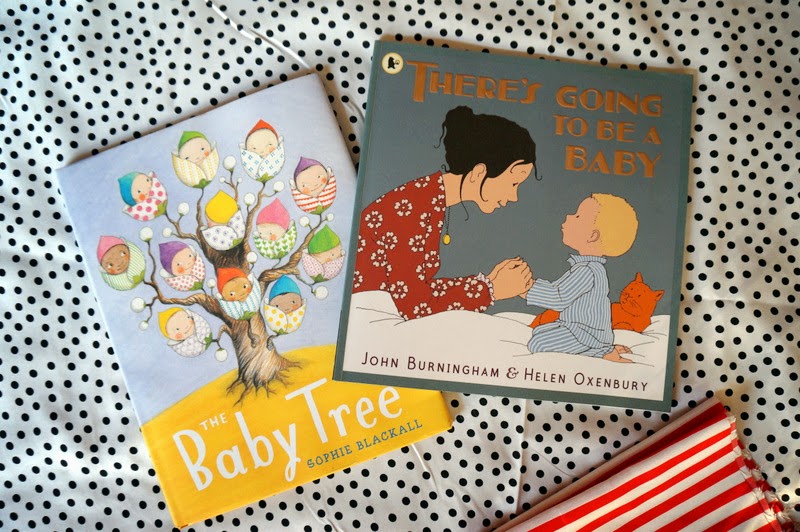I've always turned to books for answers; searching for meaning between the covers of a book is a kind of well-established, lifelong habit. So, when I've had to answer the kid's questions about the news that she's getting a little sister or brother, I've turned to the following two beautifully illustrated books: There's going to be a baby by John Burningham and Helen Oxenbury and The Baby Tree by Sophie Blackall. With the kid cuddled up on my lap, we've paged through these two new favourites and talked about all kinds of things related to the "baby in Mama's tummy".
There's going to be a baby is a sensitive and beautifully illustrated story about a little boy finding out he's getting a brother or sister and the different moods and responses he has to this news.
The illustrations capture the changing seasons leading up to the birth and explore both the time he spends with his mother as well as his internal world imagining this new baby. It's both funny and very true.
What I love about Sophie Blackall's new book, The Baby Tree, is her commitment to honesty and answering children's questions with just the right balance of openness and understanding. The story follows a curious little boy whose very busy parents tell him the news that a new baby is coming.
Once he has absorbed this information, of course many questions arise, such as where do babies come from? He then sets out to question the people in his life about this and gets a whole lot of confusing answers. Olive, his teenage baby sitter, tells him babies come from the seeds that grow into a baby tree.
His teacher, Mrs McClure, says that babies come from the hospital.
Grandpa tells him about how the stork brings babies and leaves them on the doorstep.
Roberto, the mailman, thinks that babies come from eggs. So eventually he ends up asking his parents who give a beautifully honest answer that ties in elements of each of the other responses and finally he feels satisfied about this baby mystery.


















